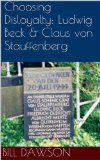
Bundespräsident Heinz Fischer welcomes visitors to his offices at the Hofburg in Vienna, 26 Oct 2009.
Today, the 26th of October 2009, is the Austrian National Holiday (Nationalfeiertag). The holiday falls each year on the 26th of October and celebrates one of the founding documents of the Second Austrian Republic, an article of the Austrian constitution which declares and codifies Austria’s neutrality.
As Federal President Heinz Fischer said today in his speech at Vienna’s Heldenplatz:
With the passing of the article of the constitution concerning Austrian Neutrality in October 1955, Austria bound itself to not use war as an instrument of politics, to not join military alliances and to disallow foreign countries to have military bases on its soil.
As is tradition, the Federal President (Bundespräsident) will speak to the nation tonight at 19:48 Vienna Time (18:48 GMT). The replay will be available online at 20:00 (19:00). Unfortunately — and it pains me to say this — the Austrian public television network, the ORF, has a very poor website. It’s impossible to find a link to where the speech will be available online. I wanted to provide it for all of you who were ready and willing to practice your German! I may come by later and update this post with the proper link.
Here’s last year’s speech. Watch at least the first few seconds to hear part of the Austrian National Anthem and to see the beautiful Hofburg at night:
Until next post!

Bill Dawson
 P.S. One of my favorite books concerning Austrian History covers the idea of Austrian neutrality and how it came about. The book is Gordon Brook-Shepherd’s The Austrians: A Thousand-Year Odyssey. (That link is for Amazon.com, but it’s also available from Amazon.ca, Amazon.co.uk and Amazon.de.)
P.S. One of my favorite books concerning Austrian History covers the idea of Austrian neutrality and how it came about. The book is Gordon Brook-Shepherd’s The Austrians: A Thousand-Year Odyssey. (That link is for Amazon.com, but it’s also available from Amazon.ca, Amazon.co.uk and Amazon.de.)
Gordon Brook-Shepherd is not a professional historian, per se, and therefore his writing is very approachable and enjoyable. I like to refer to him as a “gentleman historian”. I highly recommend his book as a general history of Austria, particularly if you are not looking for a history from the academic perspective.



